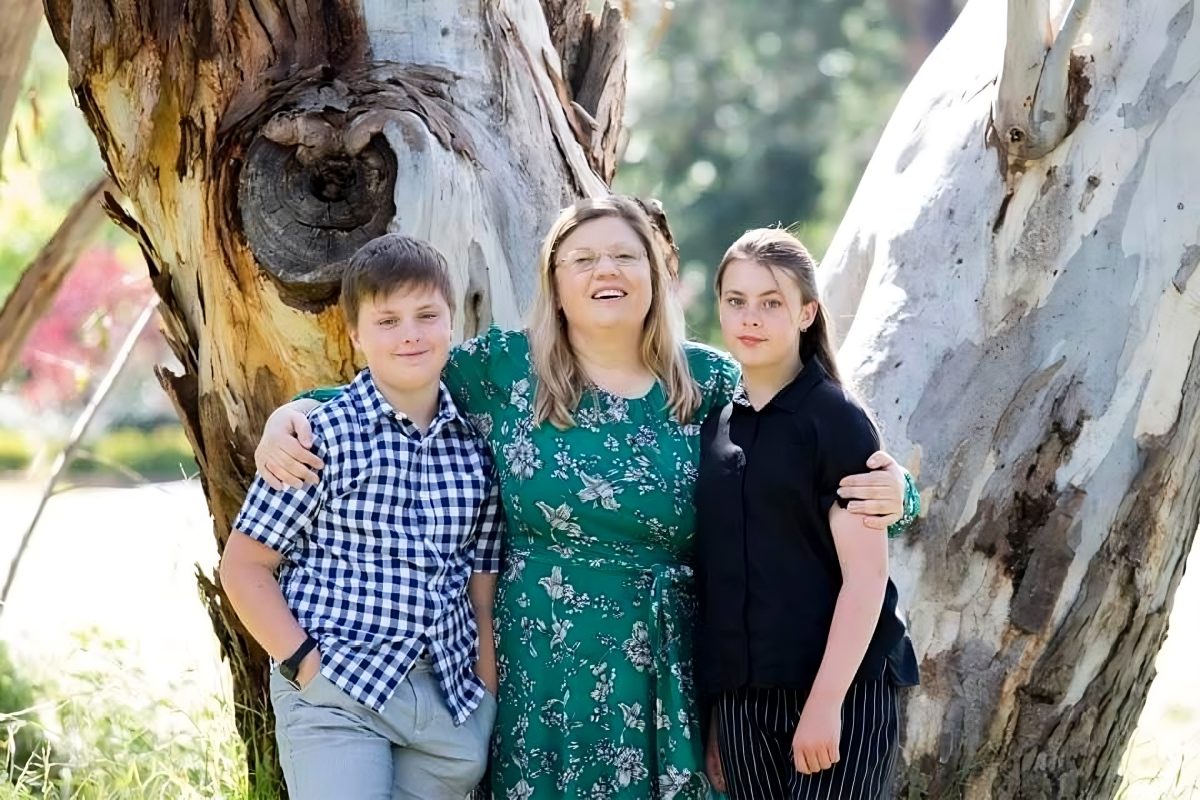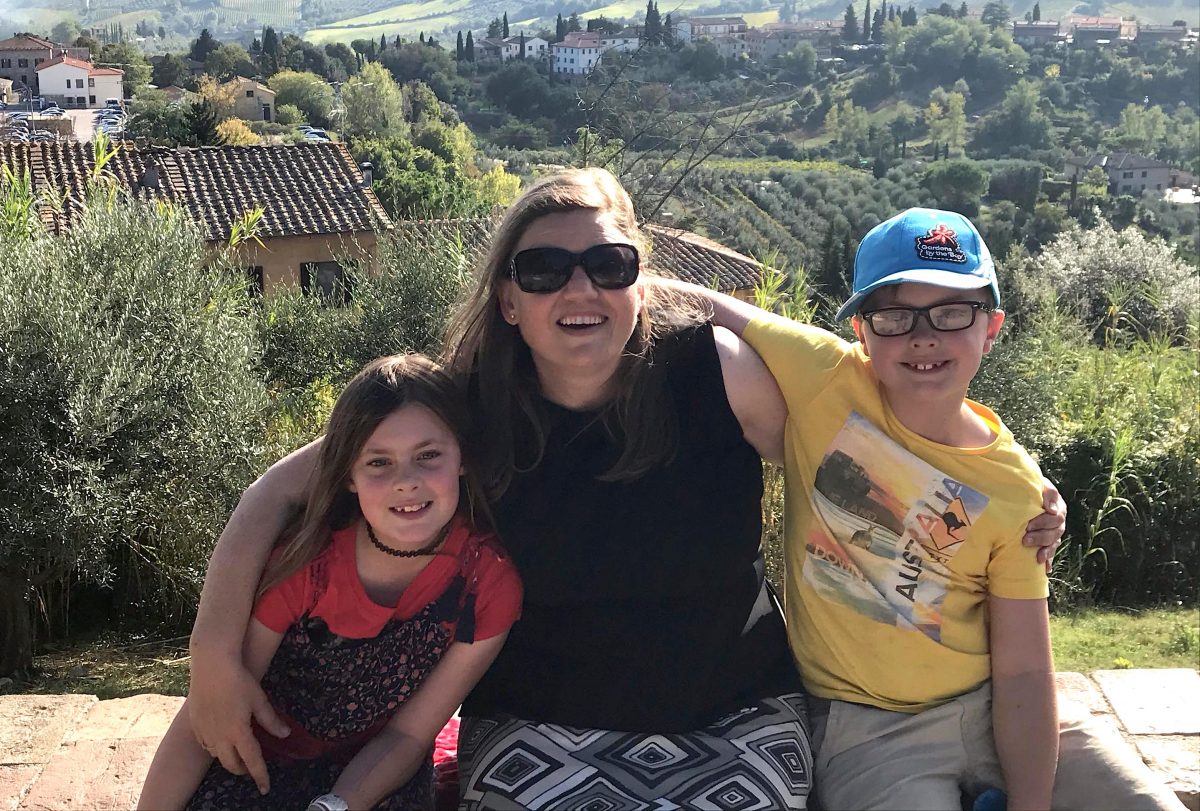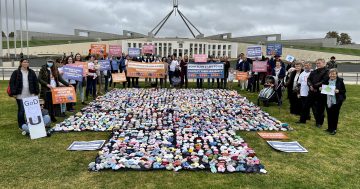
Bernadette Blenkiron says her children Riley and Tayla have dishonest birth certificates. Photo: Supplied.
Adoptive mum Bernadette Blenkiron can’t believe her two children still have a birth certificate that “tells them a lie”.
“Their certificate says their father is unknown and that I gave birth to them,” she said.
“This is ridiculous. Are we living in the 1950s with adoptions remaining a secret? she said.
“No child has a secretive adoption these days. It should be accurate and all I want is their birth certificates to reflect the truth of their story. It is hurtful for my children to view this document and feel like their story is being covered up.”
Historically, when a child has been adopted in Australia, they’ve been issued with a new birth certificate which names their adoptive parents and excludes their actual birth parents.
When Ms Blenkiron adopted siblings Tayla and Riley in 2016, she campaigned for this to change. Both her children wanted their birth parents named on their birth certificates.
Her lobbying seemed to be a success when the ACT Government passed a new law in 2021 which allowed adoptees to apply for an Integrated Birth certificate (IBC), which named birth parents.
However, three years later, the ACT Government still won’t issue Tayla and Riley IBCs.
“My two children, now aged 13 and 14, still have a birth certificate that tells them a lie,” Ms Blenkiron said.
“They wheeled me out during the last election campaign to promote their legislation … I feel used and abused.”
The problem is the new law requires the birth parents to give their consent to issue an IBC.
“Birth parents must provide written consent for an integrated birth certificate to be issued to adopted children under 18,” an ACT government spokesperson said.
“This requirement, outlined [under the new law] aims to respect the privacy and rights of birth parents within the context of adoption despite the transfer of full legal parenting rights to the adoptive parent.”
Ms Blenkiron says this is impossible.
“Their father is deceased and the biological mother would be likely hurt by opening these wounds and would not agree to consent,” she said.
“I’m now legally their parent, I don’t know why they still demand birth parents’ consent.
“I’ve spoken to ministers and directorates, but they just keep blaming each other.”

Bernadette Blenkiron’s children were much younger when she first raised this issue.
The government says it is looking at ways to address this issue.
“The ACT Government recognises the challenges associated with obtaining integrated birth certificates for adopted individuals under 18 and acknowledges the historical intent behind birth parental agreement and secrecy provisions,” a spokesperson said.
“The government is currently considering what legislative amendments are required in the Adoption Act 1993 to enhance accessibility in obtaining integrated birth certificates for individuals under 18 years of age.”
ACT adoption reforms were supposedly aimed at empowering children and giving them a say in the decisions that impact their lives.
Ms Blenkiron can’t therefore understand why the ACT Government is ignoring her teenage children’s wishes.
A government spokesperson acknowledged this was a problem with the law too.
“The original [law change] was made to promote children’s wishes and rights concerning their identity, a positive step forward for the majority of children. However, this amendment has identified another area that requires additional change to better align these considerations with the preferences and needs of adopted children. The government is now considering what legislative amendments would address this additional area and ensure the preferences of adopted children regarding their integrated birth certificates are appropriately reflected.”
The Canberra mother also believes adoption is still too difficult and too rare in Canberra, especially when there are so many kids in need of permanent, stable homes. It took her four years to adopt her two children; but says that was quick compared to most others.
“I understand restoration to birth family is the desirable outcome, but that is not always possible in every case. Where that is not, children should be offered the stability and security of being adopted into a family that has cared for them potentially for many years. Why are they keeping kids in care when they don’t have to?” she said.
More than 800 children are living in temporary foster care or group homes in the ACT. Just eight were adopted last year.














